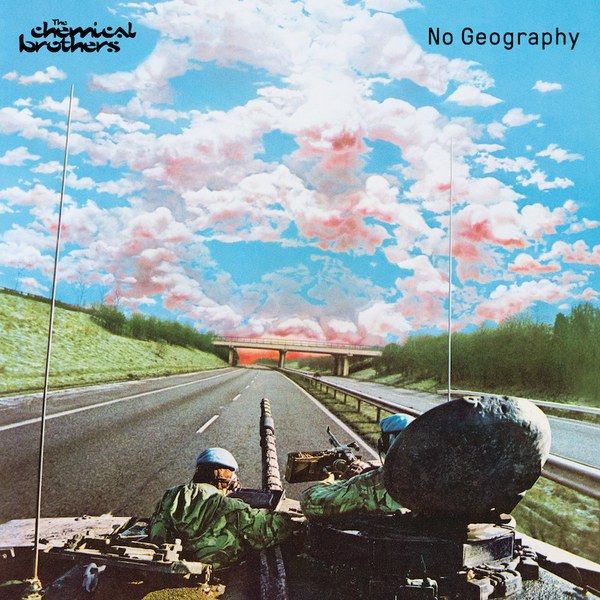The Chemical Brothers’ ‘No Geography’ is not the best cup of tea
by Sabrina Ruiz
2019-12-16

The Chemical Brothers
No Geography
Virgin EMI Records · April 12, 2019

The British electronic music duo Chemical Brothers proved much experimentation was done with the release of No Geography, their first album in four years. But with experimentation comes a lot of trial and error, and several of the tracks are blemished with a lot of, say, errors.
“Eve of Destruction,” No Georgraphy’s opening track, falls short of even the subpar standard for the rest of the record. The introduction opens up with the same heavily autotuned lyrics that continue to impede the first half of the track, with alternative lyrics eventually sprinkled in, but they are incoherent and repetitive. They feel jammed in and do not mesh well with the beat, which is composed of a mess of numerous instruments. The abrupt Japanese-speaking portion of the song represents their willingness to experiment and be cultural, but again it was more of a blunder on their end.
“Bango” has a beat that could easily pass for the same song as the last, lacking in variety and flavor. The lyrics aren’t very creative and can be considered very generic, overall nonsensical, and leaves an impression of being very disconnected from the overall song.
Although the first two songs bummed out, “No Geography,” the album’s namesake, was a much more listenable track. For starters, the beginning makes use of enchanting sound effects that catch the ear. The background of the song’s development is actually interesting, as the lyrics are based on a love that can survive geographical separation — no matter the proximity, such a strong connection cannot be broken. In addition, portions of the song was based off the poem “Geography” by poet, novelist and activist Michael Brownstein. The electronic beats complimented the rest of the arrangement more strongly here than on previous tracks.
“Got to Keep On” had nothing more than an attempt of a build up, but the lyrics were lazy and lacked in adding layering to the song as the beat droned on monotonously. At moments, it even sounded as if the song glitched, with church bells abruptly being heard at the drop. Forced experimentation and unorthodox methods were evident.
“Gravity Drops” was nothing extraordinary. The beat was sleazy, there were poor drops, and at several moments, the lyrics were out of sync with the music or sounded off key.
Despite “The Universe Sent Me” consisting of lyrics that, on their own, form a promising basis for a great song, the mixing blurred them out and they could hardly be distinguished. “Something something something” served as a terrible filler in the song that resulted in a lot of overlapping.
“We’ve Got to Try” was still repetitive, droned on, and implemented more space sound effects than a song should hold.
“Free Yourself” had a similar theme to “Eve of Destruction,” where the autotune of the ceaseless “Free Yourself” repeats on and on. It did not sound much different from the rest, and the drop only managed to sound scattered before relapsing to the introduction for the remaining 4 minutes.
“MAH” sounded like a haphazard mix of sound and words, although the “I ain’t gonna take it no more” was lost in the maze of techno, making it sound more like the prior tracks.
However, “Catch Me I’m Falling” did well to nicely close the album. The vibrations that carried through the rhythm of the words were much smoother, alongside the techno interludes that did not sound as purposefully burdened with disarranged tones.
No Geography represents an idiosyncratic genre that will always be entitled to having more than one perspective. This would surely be more preferable to those with a taste for electronic music and distinctive techniques being applied, but it is not everybody’s cup of tea.
